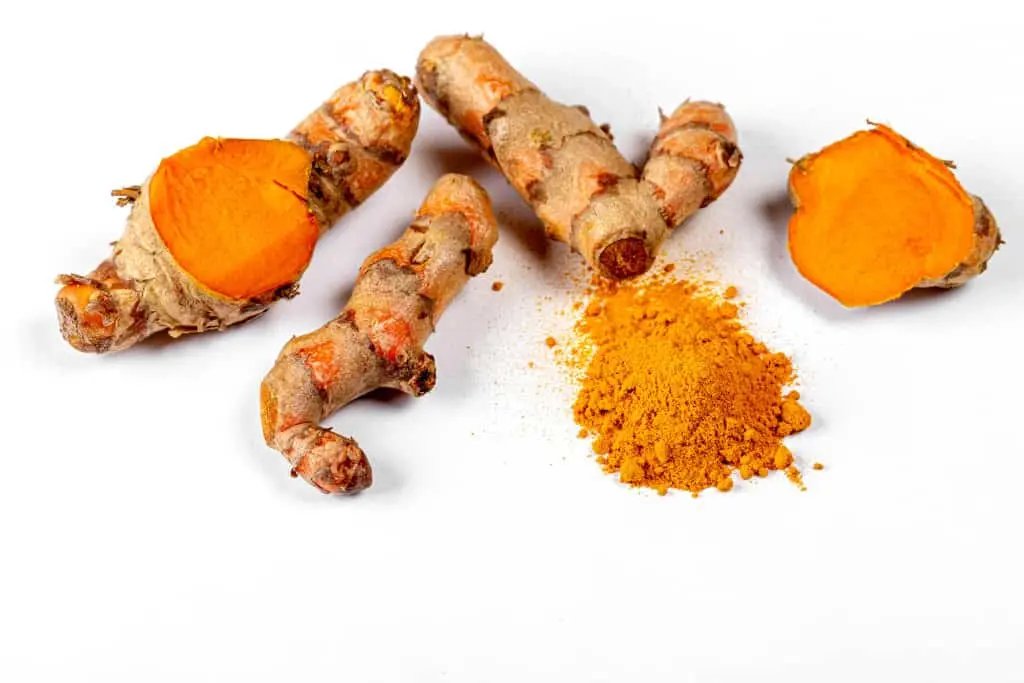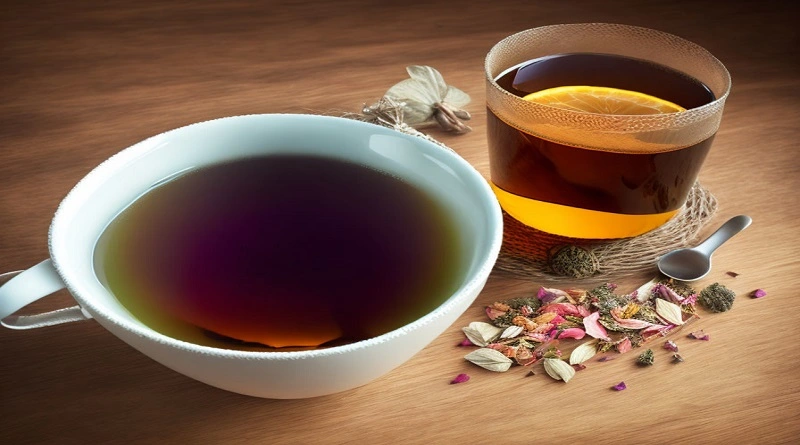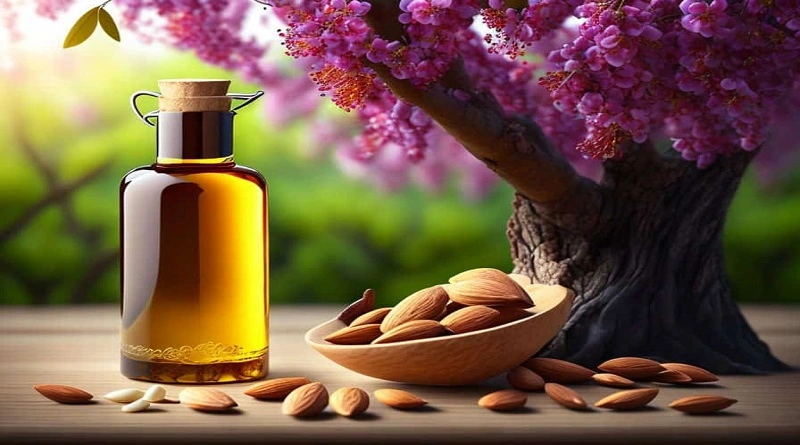Turmeric is a spice widely used in Asian cuisine, with a long history of medicinal use in Herbalism, Ayurvedic, and Chinese traditional medicine. It contains curcumin, a powerful antioxidant and anti-inflammatory compound that may have numerous health benefits, including reducing inflammation, improving brain function, and lowering the risk of chronic diseases.
It can be used fresh, dried, or powdered in a variety of dishes, such as curries, soups, and sauces. Traditionally it has been used to treat a range of conditions, including digestive disorders, skin conditions, and wounds.
Adding turmeric to your diet can be a flavorful and healthful way to enhance your culinary experience while reaping potential health benefits.
Introduction
Turmeric is an herb member of the ginger family. Its root stalk possesses therapeutic qualities and has had several culinary and medicinal uses since times. It is a super spice and is commonly notated as the Queen of Spices. This food contains numerous healthy nutrients and boasts a high antioxidant value.
Botanical name (Curcuma longa), Arabic (الكركم Alkarkum), Bangali (হলুদ Haluda), Hindi (हल्दी Haldee), Malay (Kunyit), Urdu (ہلدی Haldee)
Turmeric Plant:
Turmeric is a perennial plant from 60 centimeters to 1.5 meters high with large, oblong leaves with long petioles, oblong limbo, large and thin measuring 20 to 70 centimeters long and 8-18 cm wide that are dark green on the upper surface and pale green underneath.
Its yellow-white flowers grow on a spike-like stalk and have tiny, brown seeds. Inflorescence is terminal, spike-shaped, and cylindrical, bearing spikes up to 20cm long.
It only reproduces via its underground stem (rhizome) which is thick and ringed with the bases of old leaves.
It has thickened rhizomes, finger-shaped, that is to say, underground stems with several buds, and grows horizontally. From rhizome roots and herbaceous plants, shoots arise.
Native area:
Southern India and Indonesia currently leading producers are India, China, Nigeria, Bangladesh, Netherlands Germany, USA, and Myanmar
Taste:
Overwhelmingly earthy and bitter, almost musky, with a bit of peppery spice.
Temperament Group (Potency): Warm 3°, Dry 3°
Parts used: Root stalk (rhizome)
Compounds used:
Vital ingredients of Indo Pak cuisines, Tea, Golden Milk, Pickles, Soups and Stews, Health supplements, Several Medicinal uses, Body scrubs, Face wash, Sunscreens, Bronzers, Face powder, Face masks, Ubtan
You can purchase fresh turmeric from Chinese, Indian, and Pakistani markets from December to February. It’s widely accessible in the dried powder form in markets all over the world.
Turmeric’s Efficacy Beyond Spice
Turmeric, known for its use in culinary, has more benefits than just adding flavor to the dish. The spice contains several components that have scientifically proven medicinal stuff. Turmeric acts as a Purifier, Depurative, Anodyne, Skin Nourisher, Anti-inflammatory, Anti-bacterial, Anti-fungal, Anti-oxidant, Antiviral, Liver Detoxifier, Anti-mutagenic, Anti-depressant, Wounds healer, Ant carcinogenic and Support brain health.
Curcumin, a bright yellow chemical produced by the turmeric plant, is approved as a food additive by the World Health Organization, European Parliament, and the United States Food and Drug Administration.
Nutritional composition:
Turmeric powder is about 60–70% carbohydrates, 6–13% water, 6–8% protein, 5–10% fat, 3–7% dietary minerals, 3–7% essential oils, 2–7% dietary fiber, and 1–6% curcuminoids. The golden yellow color of turmeric is due to curcumin.
Turmeric is rich in anti-oxidants serving of 100 g dried turmeric powder contains 11.4 g of water and provides 354 Kcal of energy other notable components are:
| Total Carbohydrates | 65 g | Vitamins | |
| Dietary Fiber | 21 g | Choline | 49.2 mg |
| Proteins | 7.8 g | Vitamin C | 26 mg |
| Ash | 6 g | Betaine | 9.7 mg |
| Sugar | 3.2 g | Niacin | 5.1 mg |
| Phytosterols | 0.082 g | Vitamin E | 3.1 mg |
| Minerals | Vitamin B6 | 1.8 mg | |
| Potassium | 2500 mg | Riboflavin | 0.233 mg |
| Phosphorus | 268 mg | Thiamin | 0.152 mg |
| Magnesium | 193 mg | Folate | 0.039 mg |
| Calcium | 183 mg | Vitamin K | 0.013 mg |
| Iron | 41 mg | Fatty Acids | |
| Sodium | 38 mg | Monounsaturated | 1.7 g |
| Manganese | 7.8 mg | Omega-3 Fatty Acids | 482 mg |
| Zinc | 4.4 mg | Omega-6 Fatty Acids | 1.7 g |
| Copper | 0.603 mg | Polyunsaturated Fat | 2.2 g |
| Selenium | 0.0045 mg | Saturated Fat | 3.1 g |
Medicinal Usage of Turmeric
Several studies have shown that turmeric can assist in treating various health problems and it is among the most prescribed herb in herbalism.
Traditionally turmeric queen of spices has been utilized and observed very effective for strengthening the digestive system treating heartburn, diarrhea, stomach bloating, colds, fibromyalgia, and depression, and to kills yeast as well as parasites.
It is also applied externally to the skin for ringworm and infected wounds as it has anti-bacterial properties. Turmeric has long been utilized as a fast and efficient treatment for an upset stomach and to help relax digestive trouble.
This is one of those benefits which have been noted for generations and it has been proven to soothe heartburn in addition to general stomach upset.
Turmeric has been utilized in Ayurvedic practices for hundreds of years to help cleanse the liver along with the digestive system and detoxification of the body.
Turmeric keeps anti-bacterial characteristics and helps decrease the harshness of bacterial as well as viral infections and treats several skin problems. It is being used for centuries as an antiseptic agent on open wounds.
Shields from Cancer
Turmeric helps the body fend off cancer formation and growth. It’s been proven to assist with a variety of cancers, stopping the spread through the body and also the growth of the tumor in question.
It’s not too often that science supports claims that a food item might have anti-cancer benefits, but turmeric queen of spices is presently being seriously researched, and the findings claim that it truly does work to assist avoid cancer and keep it from getting worse.
Turmeric is a preventive step using an all-natural spice. Particularly, curcumin in turmeric aids in preventing cancer tumors from developing.
This is essential for cancers just like colon cancer, which begins as polyps on the colon and may grow into tumors if not treated.
Turmeric could be suitable for people that have had polyps found, but don’t have colon cancer yet. Also, very guaranteeing research shows that turmeric may go a long way in the combat against prostate cancer.
Pancreatic cancer is one of the most dangerous cancers, but turmeric extract has been proven to help treat it. Turmeric extract targets cancer cells and kills them, making it an effective natural treatment for pancreatic cancer. However, it is essential to consult with your doctor about the best treatment methods for you.
To get these benefits you can easily start consuming more turmeric, or you can utilize a turmeric supplement if it doesn’t seem likely that you’ll cook more with it.
Prevents Childhood Leukemia
Childhood leukemia is one of the most severe forms of cancer. Turmeric was observed efficiently to prevent it. Studies have shown that turmeric can avoid leukemia in several ways. This makes it one of the most beneficial natural methods at making sure your child doesn’t develop this disease.
Statistical data is evident that Countries that consume more turmeric have fewer cases of childhood leukemia than those who use less. However, more scientific studies are necessary to determine the best way to utilize turmeric for this purpose.
Protects Against Free Radical Damage
Turmeric queen of spices contains curcumin which is a powerful antioxidant that helps protect the body from free radical damage, which can cause several diseases. The antioxidant power of turmeric makes it so effective and provides many of its benefits, including preventing cancer and heart disease.
Turmeric can be a part of your daily consumption of foods containing antioxidants to combat the daily battle against free radical damage.
Many foods are known for their antioxidant value, which includes blueberries, green tea, as well as tomatoes, but it’s not too often that you discover a spice that is packed with just as much antioxidant value as turmeric.
Rejuvenates the Cardiovascular System
Turmeric helps prevent strokes and heart attacks by breaking down cholesterol that is responsible for blocking arteries. It reduces cholesterol levels and encourages the liver to get rid of bad cholesterol in the body.
Turmeric also acts as a natural blood thinner and effectively controls high blood pressure. By taking a multi-tiered approach to a healthy heart, you can reap the benefits for many years.
Combats Inflammatory Diseases
Turmeric’s natural anti-inflammatory properties mean it can act as a powerful anti-inflammatory medicine without negative side effects. Early studies have shown that turmeric may help with inflammation of the eye, inflammatory bowel disease, and multiple sclerosis.
Eases Arthritis Symptoms
Turmeric has been shown in clinical studies to help reduce the pain connected with arthritis because of its anti-inflammatory properties. It is best used as part of a standard arthritis management strategy.
Since the regular course of treatment for arthritis is concentrated around pain management with prescription medication, it’s best to use as numerous all-natural remedies as possible.
Turmeric not only works as a topical treatment but rather from the inside to assist calm inflammation and producing the body back to its more natural state.
Fights Colds and Flu
Turmeric has a warm and dry temperament that can help reduce the severity of colds and effectively treat the flu. Further its anti-viral properties help get rid of pandemics caused by viruses.
Natural Painkiller
Turmeric is a natural painkiller that can help alleviate joint pain. A study conducted at the University of Arizona found that rodents injected with curcumin suffered less joint pain. It can also help fight other types of pain that would otherwise require over-the-counter medication. Its anti-inflammatory property can help alleviate pain and inflammation.
Turmeric Nourishes the Skin
Turmeric can help the skin in several ways, from reducing redness to fighting signs of aging. Its anti-inflammatory and germ-killing abilities can help eliminate impurities in the skin. Using all-natural products like turmeric can help heal the skin without the need for unknown chemicals and additives.
Some qualities of turmeric provide it with its healing nature whenever applied to the skin. The first is that it’s anti-inflammatory, which will help calm a variety of skin problems.
Second is its germ-killing ability, which will help eliminate the skin of impurities. Probably the most common skin care products on the market include chemicals and additives that you simply wouldn’t wish to rub on your skin.
Utilizing an all-natural item just like turmeric helps you to heal the skin without these largely unknown ingredients.
Subcontinent women intensively used turmeric queen of spices for skin nourishing and improving complexion. Also, like a topical remedy for their facial skin and treating acne, pimples stretchmark, and wrinkles.
Soothes Upset Stomach
Turmeric has long been utilized as a fast and efficient treatment for an upset stomach. This is one of those benefits which have been noted for generations, but only lately has science come along to back it up.
Because turmeric serves as an anti-inflammatory, it will help to keep stomach acid from getting out of control, and it has been proven to soothe heartburn in addition to general stomach upset. Therapeutic effect on the digestive system proves turmeric queen of spices.
Taking too much turmeric can in fact cause an upset stomach, so it’s all about taking the right amount of it, and not overdoing it. An excessive amount of the good thing causes it to be a bad thing, so make sure to test your tolerance level and find the appropriate dosage level.
Detoxifies the Liver
The liver is essential to the proper functioning of all other organs.
The liver performs a big part in assisting in detoxing the body, therefore it only is sensible to help it out by detoxing the liver, and turmeric might help.
For hundreds of years, Ayurvedic practitioners have used turmeric to aid in the cleansing of both the liver and the digestive system. Both have to be functioning well to remove toxins from the body.
The reason it’s so essential to treat the liver well is that a lot of things are challenging for it. Overconsumption of alcohol, not enough water intake, as well as an incorrect diet, can take a toll on the liver. Luckily this is a resilient organ made to heal rapidly when handled right.
Turmeric is the best Immunity Booster
Turmeric includes a substance referred to as lipopolysaccharide, which will help promote the body’s immune system. Its anti-bacterial, antiviral as well as anti-fungal agents additionally assist improve the immune system.
A powerful immune system lessens the risk of suffering from colds, flu, and coughs. If you do get a cold, a cough, or even the flu, you can feel better sooner by mixing one teaspoon of turmeric powder in a glass of warm milk and drinking it once daily.
Weight Management
One of the more well-known advantages of turmeric is its capability to assist the body burn off fat. That is why many people are increasingly recommending turmeric as a dietary aid when trying to lose weight.
The best part of adding more turmeric to the diet to lose fat is it helps you to flavor up nearly any dish, and it’s all natural so you won’t need to use dangerous weight loss pills or even fad diets.
Turmeric will help raise the body’s metabolism, assisting to break down fat even if you’re sleeping.
The most effective way to use turmeric for weight management is using turmeric tea.
Turmeric queen of spice is an anti-Depressant
Turmeric can act as an antidepressant by working in a way similar to traditional medication. Research studies using laboratory animals have shown that turmeric can have positive effects on mood.
However, it is important to note that clinical depression requires a doctor’s intervention and guidance, and any all-natural treatments must be used by a physician’s recommendation.
Treats Bowel Disorders
Turmeric has been found to aid in the treatment of bowel disorders such as Irritable Bowel Syndrome and Crohn’s disease. Its anti-inflammatory properties help restore the bowels to their natural state of wellness.
While turmeric alone may not be sufficient to cure bowel disorders, it can be an essential part of a broader approach, which includes dietary and lifestyle changes and medication, as prescribed by a physician.
Help treat Anemia
It contains a rich amount of iron which is a basic nutrient for red blood cells or hemoglobin formation. therefore turmeric is commonly administrated as an anti-anemic spice.
Remedy for Headaches
Turmeric can be a highly effective treatment for headaches, especially those caused by tension. Its anti-inflammatory property can help relieve the pain.
Before using turmeric as a headache remedy, it is essential to understand the cause of the headache and avoid any known triggers.
Assisting with Cystic Fibrosis
Turmeric is beneficial in treating cystic fibrosis. Curcumin in turmeric can help alleviate symptoms of the disease. Its supplements may be used under a doctor’s supervision to help in treating cystic fibrosis.
Effectively Treat Diarrhea
Turmeric may also help to reduce diarrhea if used correctly. However, it is crucial to identify the underlying cause of diarrhea before using turmeric as a treatment.
Taking an excessive amount of it may cause diarrhea, so it is important to use it in moderation, and as recommended by a physician.
Lowers Cortisol Levels
Cortisol is a stress hormone associated with several health problems. It can assist in reducing cortisol levels naturally, reducing stress levels, and promoting overall wellness.
Precautions:
Turmeric is safe for individuals of all age groups however excessive usage may harm some sensitive individuals. Some of the reactions may include,
Firstly, allergic reactions may occur in certain individuals who are genetically susceptible to turmeric. Turmeric-containing ointments and lotions can cause skin allergies, rashes, and burning sensations. In rare cases, hives, contact dermatitis, and anaphylaxis may develop.
Secondly, it may aggravate liver and gallbladder conditions, leading to inflammatory conditions of the gallbladder and gallbladder stones or duct obstruction. It is advisable to seek the help of a healthcare provider before using turmeric in such cases.
Thirdly, it may cause gastric issues such as dyspepsia, heartburn, indigestion, gastroesophageal reflux disease, and peptic ulcers. Those who smoke or use non-steroidal anti-inflammatory drugs are particularly susceptible to these side effects. Experts recommend consuming turmeric with food and drinking plenty of water to reduce its accumulation in the gastric lining.
Fourthly, it may increase the risk of bleeding as it may prevent platelet aggregation and affect the production of clotting factors from the liver. Thus, patients with bleeding tendencies or inborn errors of clotting should avoid it.
Fifthly, its high consumption is associated with liver dysfunction that may present with indigestion and jaundice. It is advisable to limit the intake of turmeric to recommended dosages and avoid it altogether if suffering from liver conditions.
Lastly, it may interfere with the functioning of certain medications such as anti-coagulants and non-steroidal anti-inflammatory drugs. Therefore, it is essential to seek medical advice before consuming turmeric along with any other medication.
When to Avoid Turmeric
It is advisable to avoid its consumption in certain situations. For instance, medical experts advise pregnant women to avoid turmeric consumption due to the potential risk of premature uterine contractions, uterine bleeding, or painful spasms.
Additionally, there is insufficient data to support the use of turmeric during lactation, so healthcare professionals typically recommend that breastfeeding mothers refrain from its consumption.
Moreover, if you have bile-duct obstruction, you should avoid consuming turmeric as it may worsen gallbladder dysfunction. It is important to note that it can inhibit normal blood clotting, and therefore, it is best to discontinue its use at least two months before any major surgery.
It stimulates the secretion of gastric acid, which can be problematic for individuals with dyspepsia or gastroesophageal reflux disease.
If you have a history of allergy to organic coloring agents, particularly those with a yellow hue like curcumin, there is a high likelihood that you may also be allergic to it.
It is important to consider these factors before deciding to consume turmeric queen of spices. Always consult with your healthcare provider if you have any questions or concerns about its use.
Conclusion
Turmeric queen of spices contains numerous potential health benefits. It can prevent and treat a wide range of health issues. Further, its anti-aging and powerful anti-oxidant capabilities improve longevity, and wellness, and help you lead a healthier, more vibrant life.
However careful dosage under the consultation of herbalists is necessary because excessive consumption may lead to some harmful effects.
Human research continues to explore more unacquainted, rest the creator knows well about his creation
Frequently Asked Questions
How can I incorporate turmeric into my daily diet?
You can add it to a variety of dishes, such as curries, soups, stews, and marinades, and use it as a seasoning for roasted vegetables, tofu, or meats. You can even mix it into smoothies, teas, or golden milk recipes.
What are some potential health benefits of consuming turmeric regularly?
Research suggests that it may have anti-inflammatory and antioxidant effects, which could help reduce the risk of chronic diseases such as cancer, Alzheimer’s, and heart disease. It may also aid in digestion, support immune function, and promote healthy skin.
Can turmeric be used as a natural remedy for pain relief?
Some studies have shown that curcumin, one of its active ingredients, may help reduce inflammation and pain associated with conditions such as arthritis and joint pain.
Are there any potential side effects of consuming turmeric?
High doses or long-term use of may cause gastrointestinal issues, such as nausea and diarrhea, although it is generally considered safe. It may also interact with certain medications, so it is best to consult with a healthcare provider before taking its supplements.
How does turmeric compare to other spices in terms of health benefits?
While many spices have health benefits, turmeric stands out for its high concentration of curcumin, which has been extensively studied for its potential health-promoting properties. However, incorporating a variety of spices into your diet can provide a range of health benefits.
Can you use it topically for skin conditions?
People have traditionally used it as a natural remedy for various skin conditions, such as acne and eczema. It may help reduce inflammation and promote healing.














